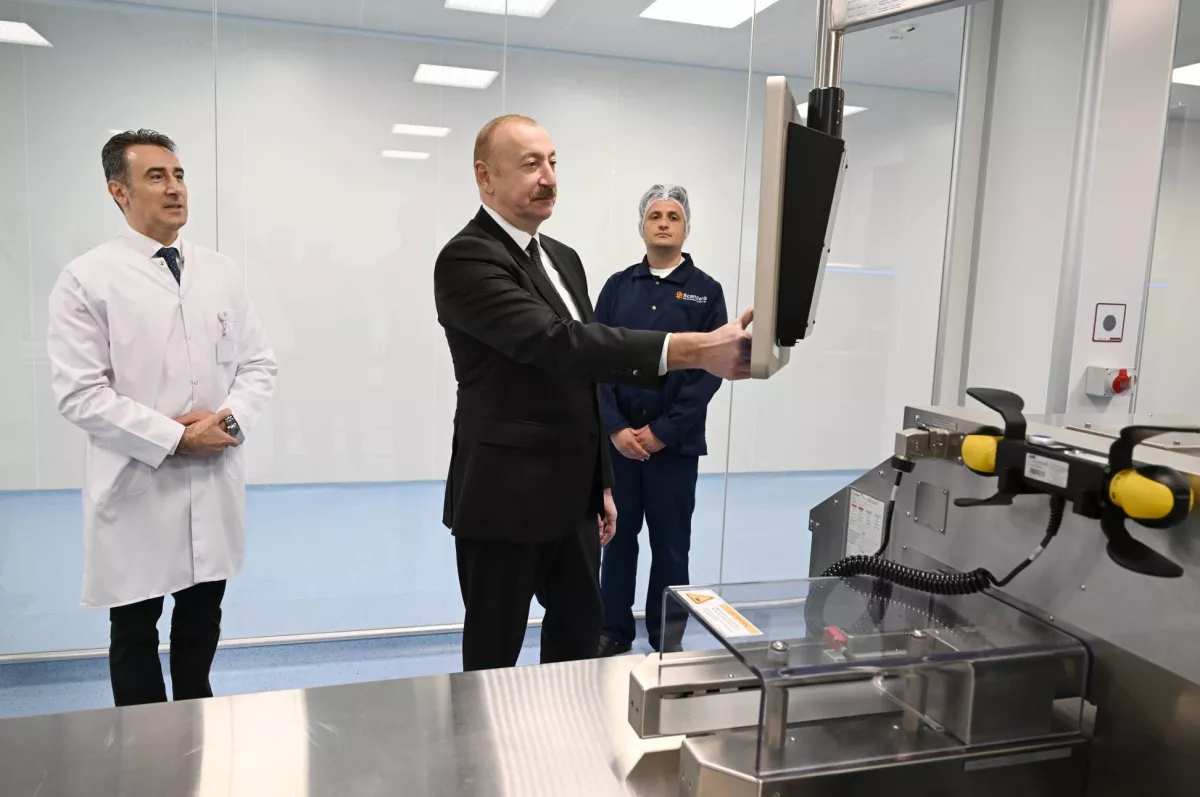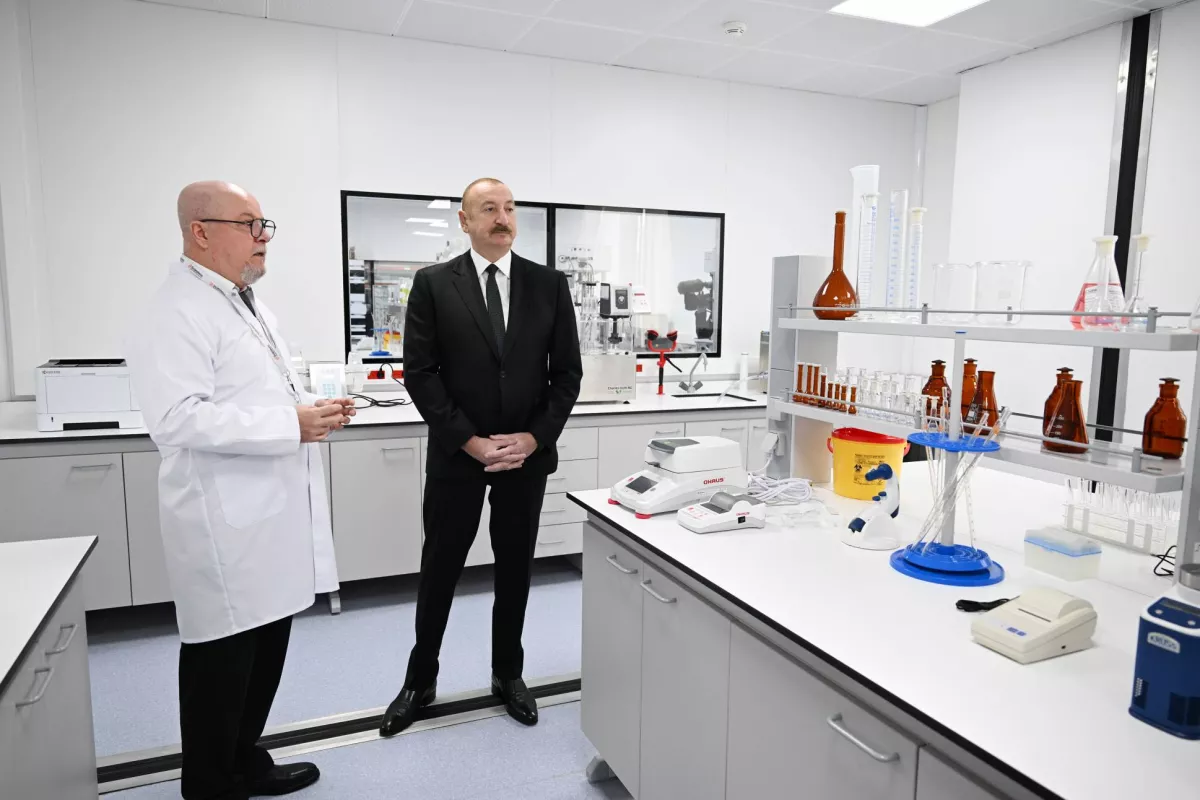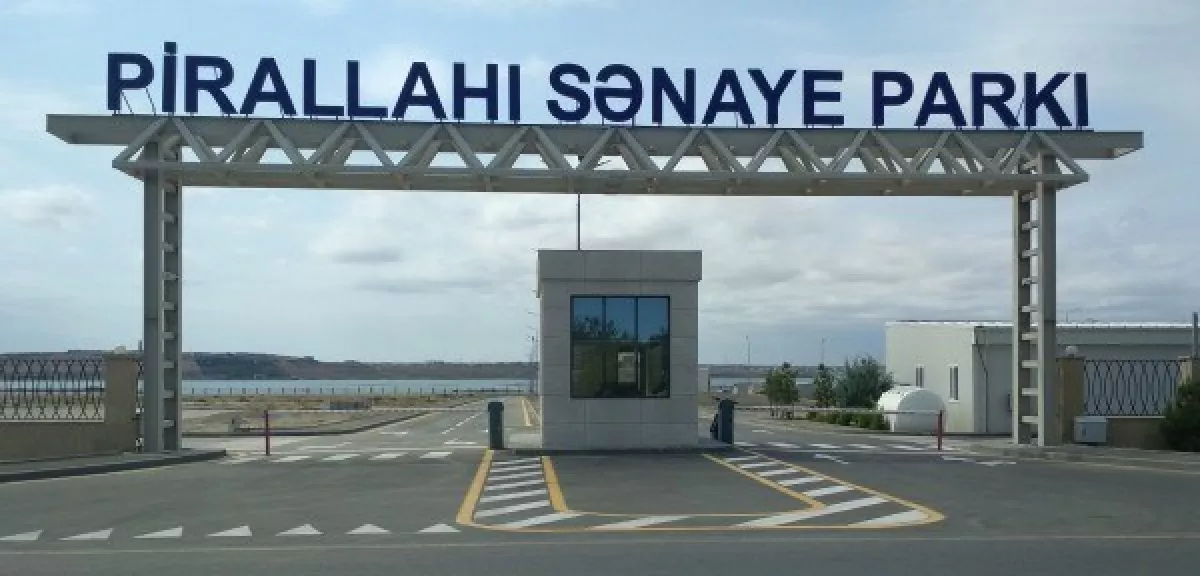Azerbaijan’s pharmaceutical industry: on the road to localisation Caliber.Az review
In recent years, Azerbaijan has been actively working to reduce its dependence on imported pharmaceuticals by developing local, import-substituting production. The latest milestone in this effort took place this past weekend, when President Ilham Aliyev attended the inauguration of Scandens Pharmaceutical Industries Ltd in Hokmali, Absheron district.
With a population exceeding 10 million, Azerbaijan presents an attractive opportunity for pharmaceutical investors, driven by steady domestic market growth and prospects for re-exporting medicines to neighbouring countries. In 2024 alone, the country imported pharmaceutical products worth 862 million manat (approximately $ 507 million). The actual market size is likely even larger, as retail prices often far exceed the declared customs value of imported medicines.
In Azerbaijan’s context, the focus is not on building large chemical plants for the production of active pharmaceutical ingredients (APIs). Such facilities require investments running into hundreds of millions—or even billions—of dollars, as they are highly complex, high-tech enterprises with long payback periods.
Experience from Eastern Europe, the Middle East, and Southeast Asia shows that a competitive and fully functional pharmaceutical industry can be developed through relatively small-scale factories, where medicines are manufactured using imported active ingredients and other components.
Azerbaijan is following a similar path. Over the past decade, legislative initiatives have enabled the development of the Pirallahi Industrial Park and are supporting the creation of a pharmaceutical cluster in the Alat Free Economic Zone.

A significant milestone in Azerbaijan’s domestic pharmaceutical industry was marked by the inauguration of Scandens Pharmaceutical Industries Ltd. in the settlement of Hokmali.
According to Economy Minister Mikayil Jabbarov and CEO Kamran Hasanov, the private investor behind the enterprise invested 74 million manat ($43.5 million). The company received an investment incentive certificate and a 6.5 million manat exemption on imported equipment. The facility was designed according to international standards and is equipped with advanced machinery and technologies from Germany, Switzerland, and Italy.
The plant will cover all stages of pharmaceutical production, from raw materials to finished products. Its annual output is expected to reach approximately 800 million tablets and capsules, including antibiotics, medications for diabetes, liver and heart conditions, allergy treatments, and gastroenterology and andrology drugs. The enterprise has created 120 jobs, and its products will not only meet domestic demand but are also expected to be exported in the future.

Notably, the localisation of pharmaceutical production in Azerbaijan began just under ten years ago, following a presidential directive to establish the Pirallahi Industrial Park, specialised in the production of medicines, medical, and hygiene products. On its 30-hectare territory, the government invested in the construction of all necessary infrastructure, including roads, energy, utilities, and communications networks.
By mid-2025, seven companies had resident status in the park, with a total declared investment capital exceeding 121 million manat ($71 million). More than 45 million manat ($26.4 million) has been invested in completed projects, and resident companies have produced medicines, hygiene, and other products worth 65 million manat ($38.2 million).
The park hosts several enterprises manufacturing disposable syringes and baby diapers, and a facility for producing blood storage containers and testing equipment is under construction. Additionally, an Azerbaijani-Russian joint venture operates here, producing anti-diabetic and other pharmaceutical products. Among the largest upcoming projects is the Azerbaijani-Turkish joint factory, Gen Pharma Caucasus Manufacturing Operations, whose construction began in late 2023; it is planned to produce 42 different pharmaceutical products.
In this context, it is worth noting that the territory of the Pirallahi Industrial Park is almost fully occupied by resident companies. As a result, the Agency for the Development of Economic Zones (ADEZ) of Azerbaijan, operating under the Ministry of Economy, has raised the issue of expanding the park’s territory and creating pharmaceutical production clusters in other regions of the country.

The geographic scope for pharmaceutical and medical production in Azerbaijan is expanding, including in the Alat Free Economic Zone (FEZ). Under the current FEZ legislation, resident companies benefit from favourable tax and customs incentives if they export around 75% of their products. Accordingly, the FEZ is considered a regional hub for pharmaceutical investors whose production is primarily oriented toward exports to the Caspian region and other post-Soviet countries. Among them, the Israeli company BioPharmax, registered in the Alat FEZ, is continuing construction of production facilities where it plans to manufacture 50 types of medical products, with a focus on insulin.
Negotiations are ongoing between the Ministry of Economy and the Ministry of Health to attract investments and know-how from international pharmaceutical companies from Türkiye, Israel, Pakistan, Belarus, Ukraine, Hungary, and several other countries.
Discussions with the Turkish company Nobel İlaç Sanayi ve Ticaret A.Ş. on the construction of a pharmaceutical plant in Azerbaijan have been ongoing for some time, while the Hungarian pharmaceutical company Gedeon Richter is also exploring various options for industrial and commercial cooperation.
In 2023–2024, representatives of the leading Pakistani pharmaceutical company IBL Group, as well as specialised firms Searl and Mercury ME DMCC, held negotiations with ADEZ to study potential investment opportunities and the transfer of know-how to Azerbaijan.
Negotiations are nearing completion with Belarusian companies planning to transfer pharmaceutical technologies and establish production of medicines and vaccines in Azerbaijan, including in the veterinary sector. At the end of October, during the 27th Azerbaijan International Medical Innovations Exhibition (Medinex-2025), research institutes from Ukraine and Azerbaijan signed a series of agreements in the pharmaceutical field, including joint development and production of new medicines and vaccines.
At the same time, steps are being taken to develop a qualified workforce within Azerbaijani universities. A key milestone in this direction was the signing of a quadrilateral memorandum of understanding between the newly inaugurated Scandens Pharmaceutical Industries Ltd, Azerbaijan Medical University, University of Pécs in Hungary, and Panon Pharma to implement short- and long-term training and internship programmes for future pharmacists.








